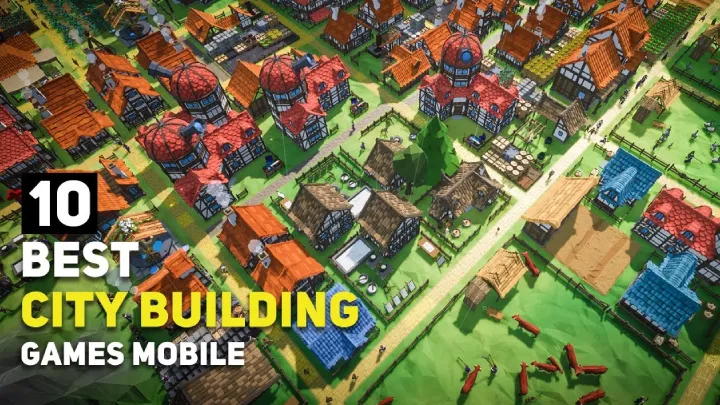Understanding the Basics of The Sims 4
The Game’s Premise
Core Gameplay Mechanics
- Creating Sims: Players can customize their Sims' appearances, personalities, and aspirations using an intuitive character creation tool.
- Building and Furnishing Homes: The game features a robust build mode that allows players to design their Sims' homes with various architectural styles and furnishings.
- Managing Needs and Relationships: Sims have needs such as hunger, socialization, and fun, which players must manage. Additionally, relationships with other Sims can influence gameplay, providing opportunities for romance, friendship, or rivalry.
Getting Started: Tips for New Players
Creating Your First Sim
- Choose Traits Wisely: Sims have traits that affect their behavior and interactions. Choose traits that align with the lifestyle you envision for your Sim. For example, if you want them to be successful in their career, consider traits like Ambitious or Genius.
- Set an Aspiration: Aspiration sets goals for your Sim's life. Each aspiration offers specific rewards and can guide your gameplay. Pick one that excites you, whether it’s related to friendships, careers, or family.
Familiarizing Yourself with Controls
- Movement and Camera Controls: Practice moving the camera around and zooming in and out to get a better view of your Sim and their surroundings.
- Interaction Menus: Get familiar with the interaction menus for your Sim, as these will allow you to perform various actions, from socializing to working.
Exploring the Neighborhoods
The Importance of Exploration
- Visit Different Lots: Each neighborhood has unique lots, such as parks, cafes, and community centers. Visiting these can provide your Sims with new experiences and opportunities.
- Meet Other Sims: Interacting with other Sims can lead to friendships and relationships. Take the time to visit and socialize with neighbors.
Finding Hidden Secrets
- Look for Collectibles: As you explore, keep an eye out for collectibles like frogs, crystals, and fish. These can provide valuable resources and contribute to your Sim’s goals.
- Attend Events: Check the calendar for community events and festivals. These can introduce your Sim to new friends and unique activities.
Mastering Building and Furnishing
Effective Building Strategies
- Plan Your Layout: Before diving into building, sketch a rough layout of the house. Consider how you want the spaces to flow and function.
- Use the Grid System: The build mode features a grid system that helps in placing walls and furniture accurately. Utilize this to create organized and visually pleasing layouts.
Choosing Furnishings
- Match Your Style: Choose furniture and decorations that match your desired aesthetic, whether it’s modern, rustic, or eclectic. This can enhance the overall look and feel of your home.
- Balance Functionality and Style: While aesthetics are important, ensure that your home is functional. Place essential items like beds, kitchens, and bathrooms in convenient locations.
Managing Your Sim’s Needs
Understanding the Need System
- Basic Needs: These include hunger, hygiene, social, fun, and energy. Monitor these needs closely and take action when they get low.
- Emotional Needs: Sims can experience a range of emotions that affect their behavior. Acknowledging and addressing these emotions can lead to fulfilling interactions and experiences.
Strategies for Managing Needs
- Set Routines: Establish daily routines for your Sims to help manage their needs. For instance, ensure they eat breakfast, socialize, and get enough sleep.
- Use Objects Wisely: Certain objects can help fulfill needs more efficiently. For example, a TV can provide fun, while a computer can help with socializing and skills.
Building Relationships
Importance of Social Interactions
- Diverse Relationships: Your Sims can form a variety of relationships, from friendships to romantic partnerships. Each relationship type has its own dynamics and interactions.
- Social Events: Host parties, dates, or family gatherings to strengthen bonds. These events can introduce new interactions and deepen relationships.
Navigating Romantic Relationships
- Flirt and Date: Use the appropriate interactions to flirt and build romantic connections with other Sims. Don’t rush; let the relationship develop naturally.
- Manage Breakups: If a relationship turns sour, be prepared for the possibility of breakups. Manage your Sim’s emotional state and consider avenues for moving on.
Pursuing Careers and Skills
Understanding Career Options
- Diverse Career Paths: The game features various careers, from traditional jobs like doctor and teacher to unique options like musician or astronaut. Choose a career that aligns with your Sim’s traits and aspirations.
- Freelancing and Side Hustles: In addition to full-time careers, Sims can also pursue freelance work or hobbies that can generate income. Consider exploring these opportunities.
Building Skills
- Practice Regularly: Encourage your Sim to practice skills related to their career. For example, a musician should regularly play instruments, while a chef should cook frequently.
- Use Skill Books: Skill books can provide valuable insights and advancements in skills. Purchase books related to your Sim’s career or hobbies to help them improve faster.
Exploring Expansion Packs and Updates
Utilizing Expansion Packs
- Choose Packs Wisely: Consider which expansion packs align with your interests. For example, if you enjoy family gameplay, "The Sims 4: Parenthood" can add depth to raising children.
- Incorporate New Features: Each expansion pack introduces new features, careers, and items. Make sure to integrate these into your gameplay to maximize your experience.
Keeping Up with Updates
- Patch Notes: Stay informed about game updates through official patch notes. This can help you understand new features and changes in gameplay mechanics.
- Community Feedback: Engage with the Sims community to learn about the latest trends, tips, and strategies that arise from new updates.
Navigating Challenges and Setbacks
Dealing with Sim Misfortunes
- Accidents and Mishaps: Your Sims may face accidents, such as fires or breakups. Be prepared to manage their emotions and help them recover.
- Career Setbacks: Sometimes, a Sim may not get promoted or face difficulties at work. Encourage them to try again and maintain a positive outlook.
Finding Solutions
- Adapt and Overcome: If your Sim faces setbacks, adapt your strategy. For example, if they are struggling at work, consider helping them improve their skills or networking with colleagues.
- Support from Friends: Encourage your Sim to lean on friends and family for emotional support during tough times. This can help them recover faster and regain motivation.
Preparing for the Future
Setting Long-Term Goals
- Plan for Legacy: Consider creating a legacy family where you pass down values and traits through generations. This can add depth to your gameplay and storytelling.
- Set Aspirations for Future Generations: Think about the aspirations and careers you want future generations to pursue. This can guide your gameplay and create a cohesive family story.
Embracing Change
- Embrace New Experiences: Don’t shy away from trying new things, whether it’s exploring new neighborhoods, pursuing new careers, or forming new relationships.
- Adapt to Life Stages: Recognize that Sims go through different life stages, from childhood to elderhood. Each stage offers unique gameplay opportunities and challenges.
Conclusion



















